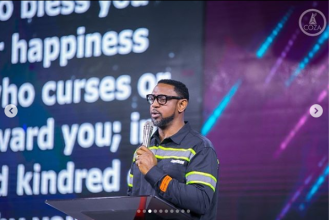In response to the growing insecurity plaguing Nigeria, the Senate has resolved to convene a two-day National Security Summit in Abuja, bringing together stakeholders from across the country to deliberate on effective solutions to the ongoing crisis.
The summit will host delegates from the Federal, State, and Local Governments, alongside Traditional Institutions, in a bid to collectively address the nation’s escalating security challenges. The Senate has also urged the Federal Government to urgently reassess and reform Nigeria’s security policies based on the outcomes and recommendations of the forthcoming summit.
This decision followed the adoption of a motion titled “Urgent Need for a National Security Summit,” moved on the Senate floor on Tuesday by Senator Ibrahim Jimoh, Chairman of the Senate Committee on Inter-Parliamentary Affairs and lawmaker representing Ondo South.
The motion was co-sponsored by Senators Zam Titus (Benue North-West), Peter Onyeka Nwebonyl (Ebonyi North), and Ngwu Osita (PDP, Enugu West).
In presenting the motion, Senator Jimoh drew attention to the global dimension of insecurity, referencing the Russia-Ukraine conflict and its ripple effects on global food security and efforts to achieve the Sustainable Development Goals. He also underscored how escalating economic tensions, such as the ongoing tariff disputes in the United States, reflect a broader geopolitical divide between the global North and South, which has implications for international stability.
Senator Jimoh expressed deep concern over how these global tensions are intensifying the insecurity in Nigeria, where violent crimes such as banditry, kidnapping, and terrorism are now prevalent in both rural and urban areas.
He further highlighted historical political crises in Nigeria — including the Kano riots of 1953, constitutional conflicts in the Eastern Region during the 1960s, and election-related violence in the 1980s — urging lawmakers not to forget the country’s complex political past as Nigeria prepares for future elections.
He noted: “President Bola Tinubu is committed to addressing the country’s security challenges,” adding that the current administration’s efforts must be complemented with increased intelligence support to achieve lasting peace.
The senator stressed that although modern military strategies and communication techniques have evolved, there remains a pressing need for innovative alternatives to conventional military operations. He also called for improved funding for Nigeria’s armed forces to strengthen their capacity.
According to him, “the Senate must embrace and support the ‘Peace for All’ ideology in tandem with the executive’s ‘Renewed Hope Agenda’.”
The planned summit is expected to serve as a robust platform for inclusive dialogue among security experts, policymakers, and other stakeholders. It aims to explore actionable measures to curb insecurity and rebuild confidence among Nigerian citizens.
It would be recalled that former Senate President Ahmad Lawan had similarly initiated a national security summit during the 9th Assembly, citing the widespread insecurity affecting all geopolitical zones of the country. He emphasized the legislature’s critical role in leading strategic discussions to end the security crisis.
The upcoming summit is expected to build on these prior initiatives, with the hope of generating practical and sustainable strategies for restoring peace and stability across Nigeria.







